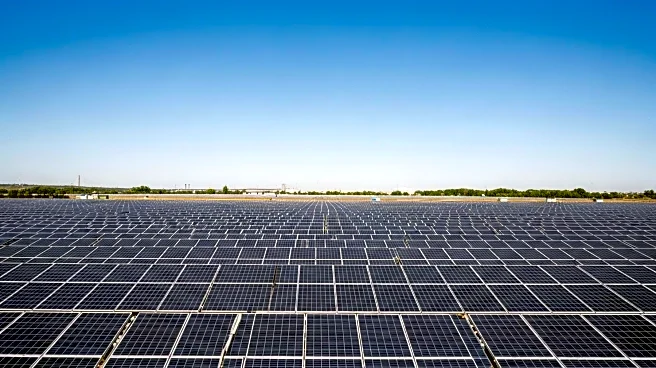What is the story about?
What's Happening?
Toyota has launched a 30-acre solar field at its Kentucky manufacturing plant, marking a significant step towards achieving net-zero emissions by 2030. The solar installation will generate electricity equivalent to the needs of 1,400 homes annually, reducing the plant's reliance on fossil fuels. This initiative is part of Toyota's broader strategy to integrate renewable energy into its operations, reflecting the automotive industry's shift towards sustainability.
Why It's Important?
Toyota's solar field represents a strategic move to address environmental concerns and regulatory pressures for decarbonization. By investing in renewable energy, Toyota aims to reduce operational costs and enhance energy efficiency. This project sets a precedent for other automakers to adopt similar measures, potentially influencing industry standards and consumer expectations regarding sustainability.
What's Next?
Toyota will continue to expand its renewable energy initiatives, potentially increasing solar capacity at other facilities. The company may face challenges related to scaling up these efforts, including supply chain issues and regulatory hurdles. Success in achieving net-zero emissions could bolster Toyota's reputation as a leader in sustainable manufacturing, encouraging further investments in green technology.

















